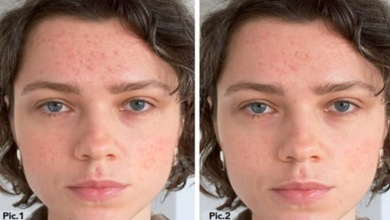Meditation has become an increasingly valued aspect of mental health support, especially within the realm of spiritual psychiatry. As more individuals seek healing beyond conventional therapies, the spiritual dimension of care continues to grow in relevance. Practices like guided meditation and mindfulness can help individuals reconnect with themselves, offering not just relief from symptoms but also a pathway to personal meaning. In this context, working with a spiritual psychiatrist in California may support a more integrated and reflective healing experience.
Understanding the Mind-Body-Spirit Connection
Spiritual psychiatry recognizes that emotional well-being is shaped by more than neurochemistry. It involves deep awareness of one’s inner life, spiritual beliefs, and overall purpose. Meditation can help bring these components into balance. By promoting inner quiet and presence, it encourages individuals to examine patterns of thought that contribute to suffering. This deeper introspection often leads to more empowered responses to stress and adversity. Instead of reactive thinking, meditation fosters stillness, which allows the mind and body to find alignment. Over time, this inner harmony supports improved mental health outcomes and self-regulation.
A Path to Holistic Healing
Spiritual integration in psychiatric care can reshape the way individuals perceive healing. Emotional difficulties are not seen solely as conditions to be fixed but as invitations to explore the self more deeply. Meditation supports this process by promoting grounded awareness and by helping individuals cultivate patience and clarity. Many who practice spiritual psychiatric approaches discover that emotional balance naturally arises when they look inward. Ideas like purpose, meaning, and acceptance become central in the therapeutic journey. Different frameworks of care, the path to holistic healing, and the connection between spirituality and psychiatry encourage lasting change.
The Transformative Power of Meditation in Healing
Meditation, when integrated into psychiatric care, encourages individuals to slow down, reflect, and access a deeper awareness of their thoughts and emotions. Unlike symptom-based approaches, it fosters a sense of inner balance and self-regulation over time. Many patients have found that regular mindfulness practices reduce emotional reactivity and improve clarity in decision-making. When paired with empathetic support from a professionally trained spiritual psychiatrist, meditation becomes more than a technique it becomes a pathway to inner stability and lasting healing.
Addressing Emotional Challenges Through Spiritual Practice
Meditation creates the space to observe anxiety and depressive thoughts without being overwhelmed by them. As part of a broader spiritual model, it encourages nonjudgmental awareness and compassion toward the self. This is especially valuable when navigating persistent emotional distress.
Beyond conventional methods, spiritual guidance offers perspective. For some, it reconnects them with a sense of hope or helps rebuild a spiritual identity disrupted by trauma or stress. These emotional and spiritual layers often work together, particularly when individuals are facing challenges like anxiety and depression. The role of a spiritual psychiatrist in navigating the challenges of anxiety and depression is very important, as it allows for a deeper understanding of the individual’s inner experience while offering supportive tools rooted in both psychological and spiritual awareness.
Conclusion
Meditation, when embraced as part of spiritual psychiatry, becomes more than just a practice; it transforms into a bridge between the psychological and the spiritual. Through consistent self-awareness, individuals can develop clarity, resilience, and peace. In an age where many are seeking more depth and wholeness in mental health care, combining spirituality with psychiatry opens a meaningful and compassionate path toward healing.




